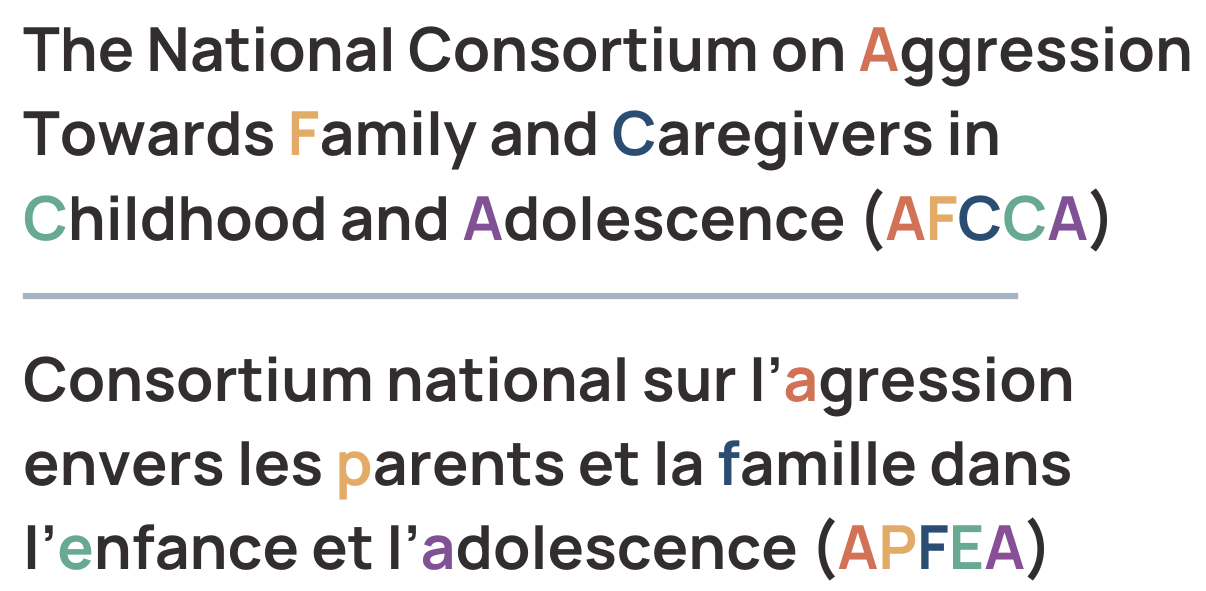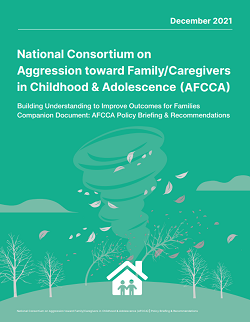policy recommendations
Families across Canada are experiencing the devastating consequences of AFCCA, and the impacts to everyone involved. Meaningful system change is required, urgently.
The Consortium has identified clear, specific actions and recommendations which will have immediate benefit to children, youth, parents/caregivers, and communities as a whole. It’s time to act.
summary of recommendations
The policy and program recommendations identified and prioritized by the Consortium have been organized here into a series of foundational pillars that would be expected to evolve and further develop over time. Those 10 pillars, and the detailed findings included under each one, serve to consider recommended next steps from a “lifecycle” orientation, considering holistically the broad needs of communities, building on the strengths of families, and improving the outcomes for individual children and youth.
-

Awareness
There is insufficient awareness or understanding of AFFCA. Awareness programs need to be developed and made available.
-

Education
While awareness of the issue is important, educational programmes for families/caregivers and for professionals should also be developed.
-

Anti-Stigma
The Consortium believes that AFFCA is under-reported by families due to stigma and/or fear of repercussions from child welfare and/or justice systems. Awareness and education materials and campaigns should have an anti-stigma orientation.
-

Research
Expanding on the growing body of international research, Canadian-based research into AFCCA is an important priority.
-

Creating the Right Door
Rather than ensuring “no wrong door”, families need the creation of the right door - an easily accessible entry point, offering understanding, coordinated and appropriately-funded services and supports, flexible respite options, and ongoing care supports.
-

Early Intervention
More research is needed into the root causes and early signs of AFCCA.
-

Family/Youth-Directed Circles of Support
Families must be enabled and empowered to remain at the center of all decision making and planning processes involving their child.
-

Effective Crisis Intervention
Traditional approaches to dealing with the needs of families experiencing AFCCA frequently are ineffective and risk doing more damage than help.
More effective measures for crisis response are needed, that focus on de-escalation and preserving family safety.
-

Financial Support
The financial impact on families experiencing AFCCA can be significant. A comprehensive review of both federal and provincial financial support and tax relief programs and eligibility is required.
-

Transitions to Adulthood
There are no clear pathways for families whose child is chronologically transitioning into adulthood. Youth/adolescents deserve clear pathways of care, with effective transitions to appropriate and effective adult services.
guiding principles
No Wrong Doors
Regardless of where or how a family seeks help and support, there should be an easy, frictionless mechanism to get them to the most effective supports based on their specific needs and circumstances.
Do No Harm
Practitioners, social systems, policymakers, and communities must be informed and aware, in order to understand and respond effectively, and ensure the child and family are not further harmed. Be humble and curious.
Preserve Families
Early interventions are important and preferred. When families need more help, prioritize maintaining family attachment even in untraditional ways. Each family is unique, and creative solutions are possible.
Normalize the Behaviour
For many children, particularly with early trauma, disrupted attachments, and/or neurodevelopmental conditions, these patterns of behaviour are common and can be expected; parents and caregivers should be prepared and supported in this.
Build a Society
Holistic, comprehensive supports are required, with coordinated approaches and interventions. The family must be at the center of determining what their child needs; and approaches must be flexible and adaptable for each family. Anyone in relationship with the child/adolescent can learn to respond in a way that the child needs.
download the reports
Building Understanding to Improve Outcomes for Families is the result of a national consultation with Canadian families, youth, researchers, and professionals in 2021. Read the full report for everything we’ve learned from those with lived experiences. The accompanying reports provide a proposed policy framework to improving systemic barriers, and an operational definition for practitioners supporting families.






